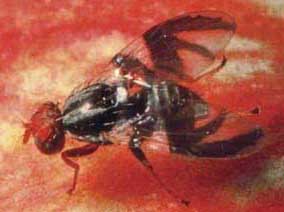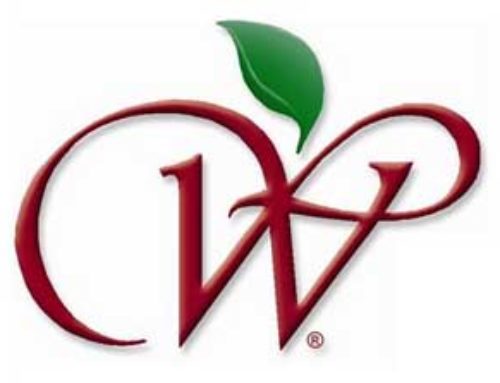Washington state regulators have finalized special permit requirements for composters seeking to transport feed stocks outside the apple maggot quarantine area.

Apple maggot fly
The state Department of Agriculture today (July 8) released its “Guidance for Requesting a Special Permit.”
The state requires the special permit to prevent the apple maggot from hitching a ride on Puget Sound area food scraps and yard waste — sometimes called green waste — when hauled to Eastern Washington facilities that make compost to sell to area farmers and landscapers as mulch and fertilizer.
The process had become more common in the wake of Seattle’s mandatory composting program until regulators found apple maggots in a load at a processing facility and subsequently halted all transports.
In May, a trio of pest control consultants published a 271-page risk assessment, concluding that compost feed stocks must be heated before transport to avoid the likely spread of apple maggot to Washington’s commercial apples, the state’s No. 1 crop.
The apple maggot attacks fruit directly, rendering it mushy, brown and inedible. The state quarantines the pest in counties where it’s already known to exist.
The special permits now require all green waste to be shredded or ground and heated to temperatures ranging from 55 degrees Celsius to 90 degrees Celsius depending on how long the heat lasts and the method of heating and other variables before moving it across quarantine boundaries. Other conditions include validation and monitoring by Department of Agriculture inspectors.
To read the entire guidance document, the permit and the risk assessment, visit the apple maggot page on the state Department of Agriculture’s Website at http://agr.wa.gov/PlantsInsects/InsectPests/AppleMaggot/
ONLINE
For background, read Good Fruit Grower‘s July 2016 story, Assessment analyzes risk for spread of apple maggot, and other articles on apple maggots and compost.
– by Ross Courtney






Leave A Comment